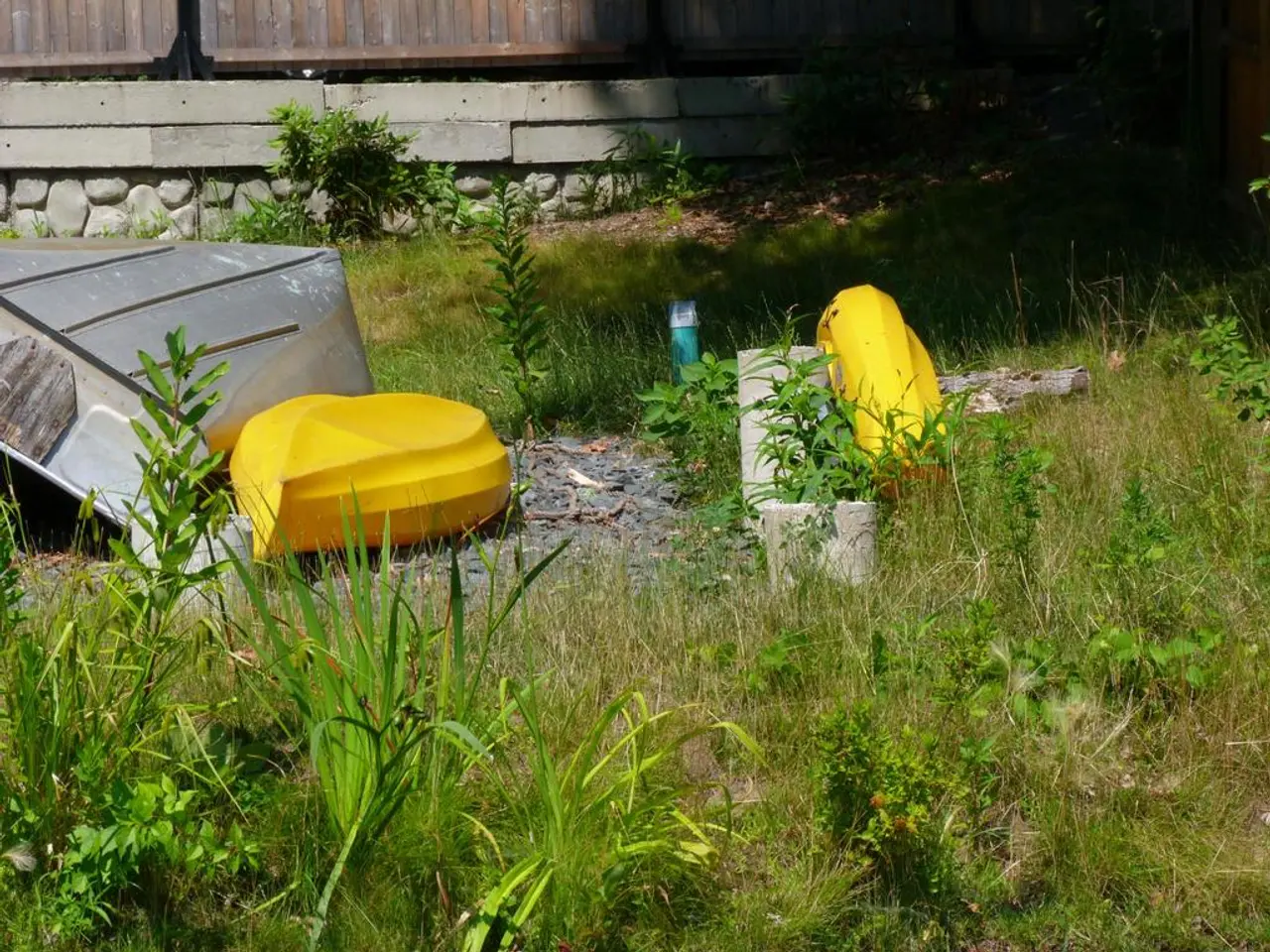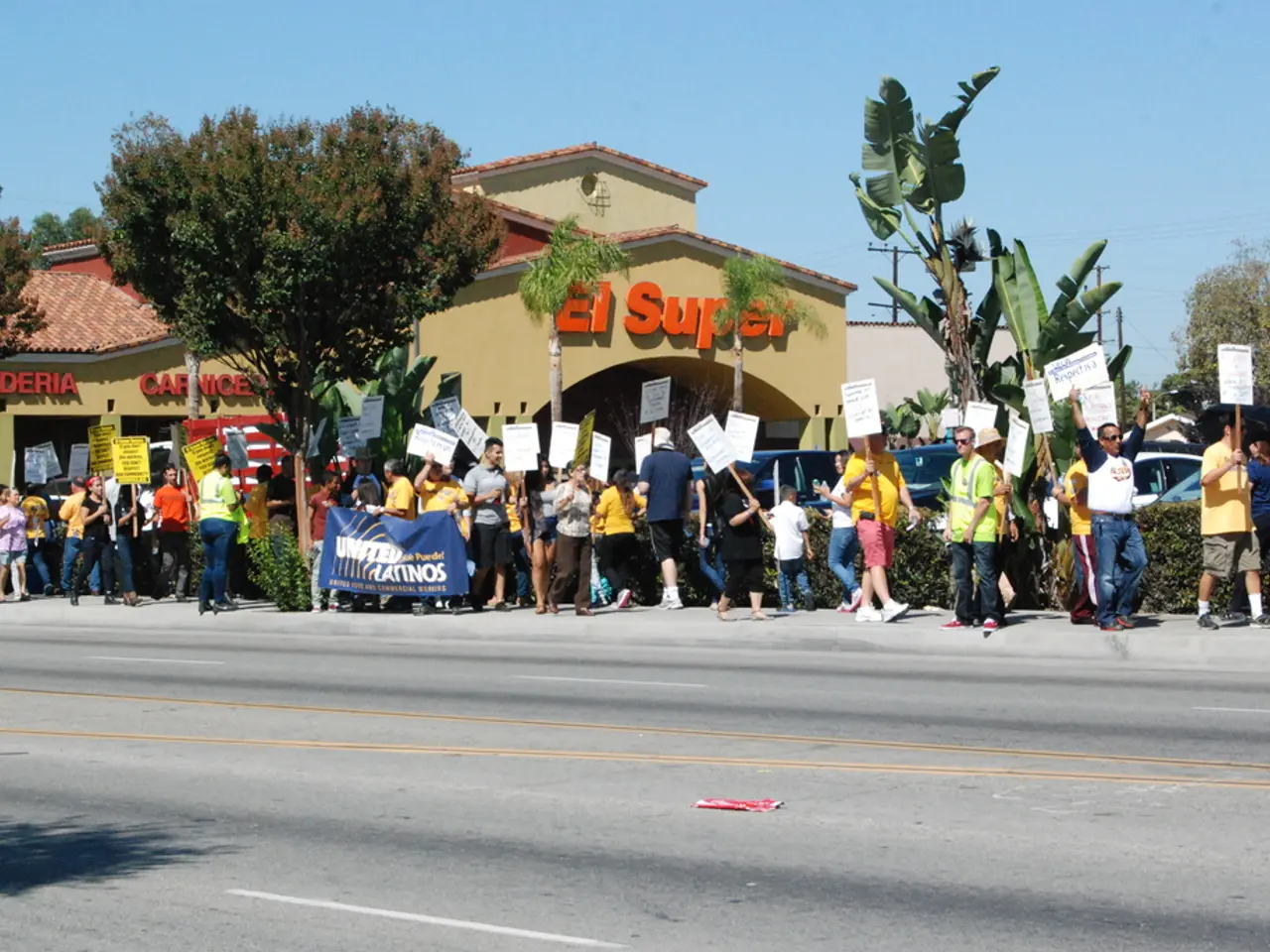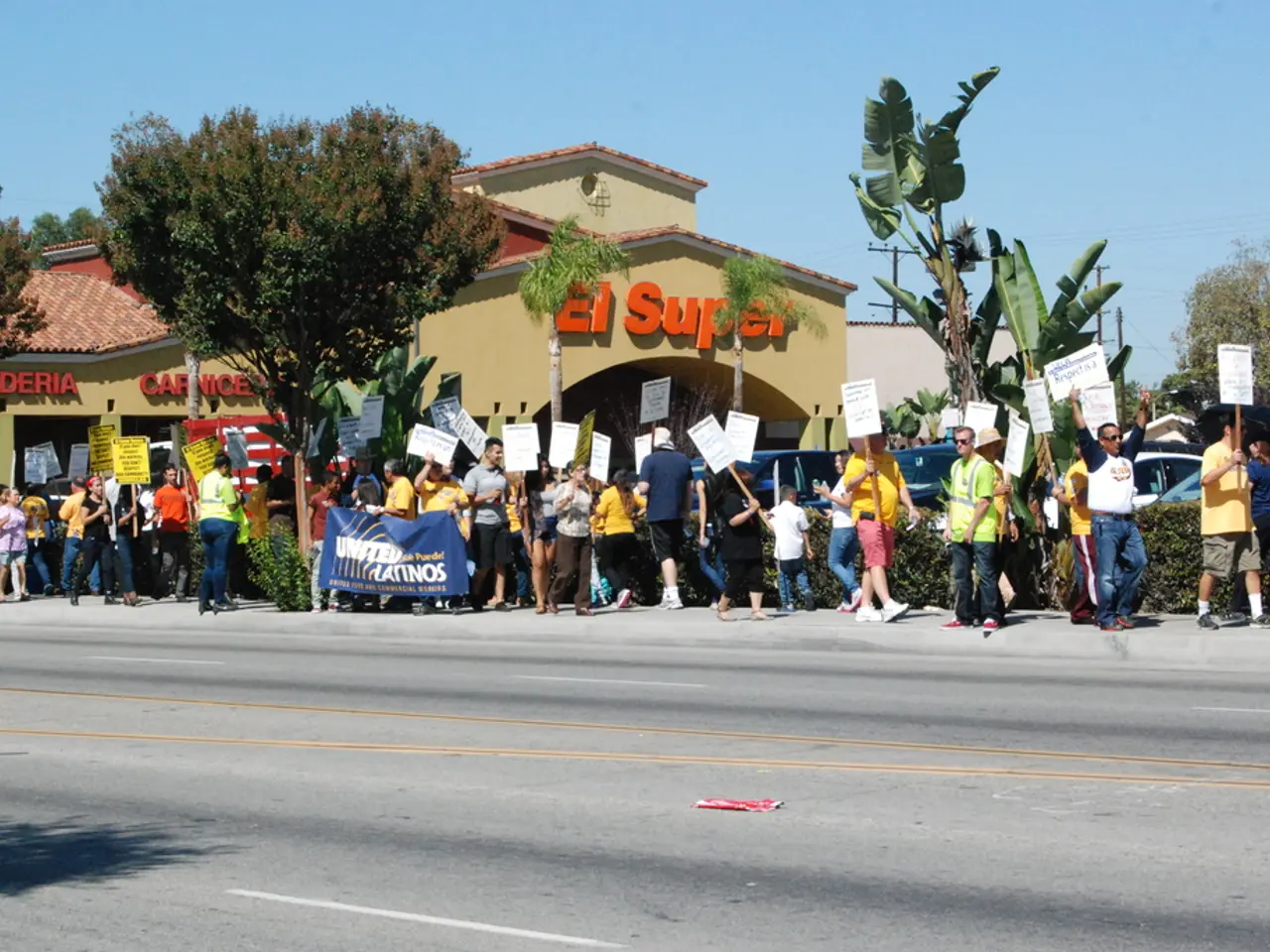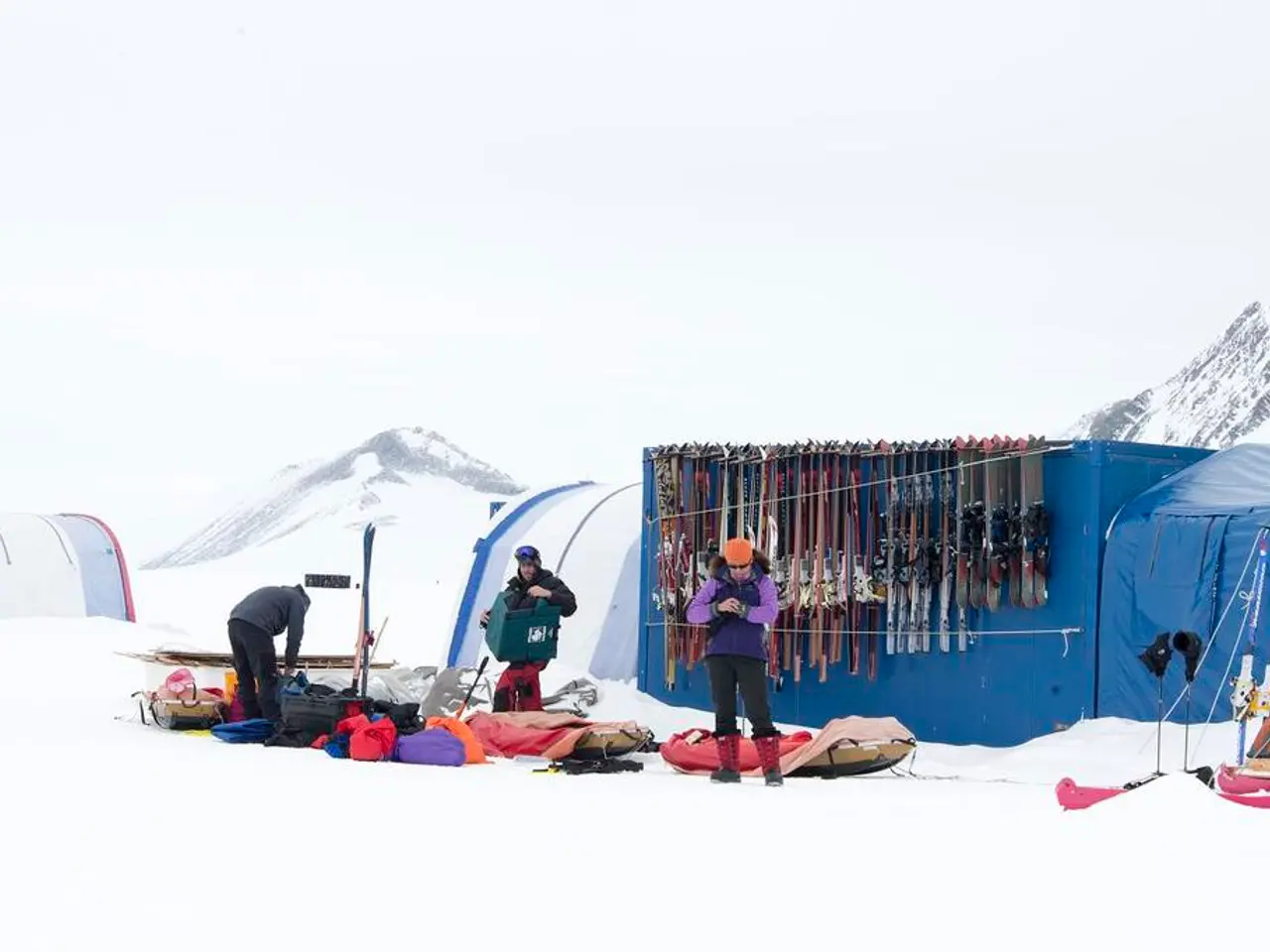Strengthening Control Over Environmental Policies and Indigenous Rights Advocacy: Brazil's Congress Advances Bill 2159/21
In a move that has sparked widespread condemnation, Brazil's Federal Congress has approved Bill 2.159/2021 on July 17, 2025. This legislation, dubbed the "Devastating Bill" by critics, poses serious risks to Indigenous Peoples, particularly those in voluntary isolation or initial contact (PIACI), and the environment.
The bill significantly undermines the protection and rights of Indigenous Peoples by weakening environmental licensing rules and protections for demarcated Indigenous territories. This deregulation enables unchecked mining, agricultural, and infrastructure projects in Indigenous lands, threatening the survival, autonomy, and security of PIACI communities who are often unknown to outsiders and have no immunity to external diseases.
The bill dismantles existing environmental safeguards that protect Indigenous territories, removing authorities and Indigenous communities from participatory decision-making processes that previously helped defend their rights and lands. This deregulation enables economic activities aligned with agribusiness and mining interests to proceed without adequately considering Indigenous rights or the environmental impacts on their territories.
More than 350 Indigenous and civil society organizations have condemned this bill as the most severe setback for Indigenous and environmental protections in decades. The bill's passage has raised urgent calls for President Lula da Silva to veto it, particularly ahead of the COP 30 climate conference Brazil is hosting in 2025, given its implications for Indigenous rights, forest conservation, and climate change mitigation.
The bill has potential consequences that extend beyond Brazil's borders. It threatens the goals of COP 30, as it contradicts the global agenda focusing on Indigenous rights and climate justice, undermining Brazil's environmental leadership and weakening its credibility on the international stage. The bill could potentially harm Brazil's reputation and standing in international forums, such as the Organisation for Economic Co-operation and Development (OECD) and the European Union.
The bill also weakens the Free, Prior, and Informed Consent (FPIC) of affected communities, potentially violating ILO Convention 169 and the right to self-determination of Indigenous Peoples. It exempts companies from conditions and allows automatic renewal of licenses, even in cases of non-compliance, reducing corporate accountability and compromising due diligence standards.
The bill's impact on Indigenous advocacy and climate governance could have long-lasting consequences, potentially weakening Brazil's ability to meet its international obligations and commitments. It undermines the Indigenous Peoples' right to their lands, territories, and resources, including the right to own, use, develop, and control them.
The passage of Bill 2.159/2021 affects approximately 32% of Indigenous lands and 80% of Quilombola territories with open processes. It poses serious risks to PIACI groups in the Brazilian Amazon, many of whom remain largely unknown to the outside world. The bill's consequences for Indigenous Peoples, the environment, and Brazil's international standing make it a critical issue that requires careful consideration and scrutiny.
Cultural Survival has urged the bill to be vetoed, expressing support for Indigenous Peoples, environmental agencies, and civil society partners working to protect Indigenous communities and the ecosystems they depend on. As the world watches, Brazil faces a critical decision that could have far-reaching impacts on Indigenous rights, environmental protection, and global climate action.
References:
[1] Amazon Watch. (2025). Brazil's Devastating Bill 2.159/2021: A Direct Threat to Indigenous Peoples and the Environment. Retrieved from https://amazonwatch.org/news/2025/07/brazils-devastating-bill-21592021-a-direct-threat-to-indigenous-peoples-and-the-environment
[2] Survival International. (2025). Brazil's Devastating Bill 2.159/2021 Threatens Indigenous Peoples in Voluntary Isolation. Retrieved from https://www.survivalinternational.org/news/12839
[3] Greenpeace. (2025). Brazil's Devastating Bill 2.159/2021: A Dangerous Step Backwards for Indigenous Rights and the Environment. Retrieved from https://www.greenpeace.org/brazil/pt-br/noticias/2025/07/a-lei-devastadora-21592021-um-passo-atrás-perigoso-para-direitos-indigenas-e-meio-ambiente/
[4] Amnesty International. (2025). Brazil: Devastating Bill 2.159/2021 Threatens Indigenous Peoples and the Environment. Retrieved from https://www.amnesty.org/pt-br/latest/news/2025/07/brazil-devastating-bill-21592021-threatens-indigenous-peoples-and-the-environment/
[5] Human Rights Watch. (2025). Brazil: Devastating Bill 2.159/2021 Threatens Indigenous Peoples and the Environment. Retrieved from https://www.hrw.org/news/2025/07/20/brazil-devastating-bill-21592021-threatens-indigenous-peoples-and-environment
- The controversial Bill 2.159/2021, referred to as the "Devastating Bill," is a subject of deep concern in the realm of environmental-science, as it poses significant threats to Indigenous Peoples and their ecosystems.
- The policy-and-legislation, having been approved by Brazil's Federal Congress, is causing a stir in political circles due to its potential impacts on international relations, particularly with agencies like the Organisation for Economic Co-operation and Development (OECD) and the European Union.
- Major environmental and Indigenous rights organizations, such as Amazon Watch, Survival International, Greenpeace, Amnesty International, and Human Rights Watch, have collectively condemned the bill, raising alarm about its consequences for climate-change mitigation efforts and the overall protection of Indigenous communities.







